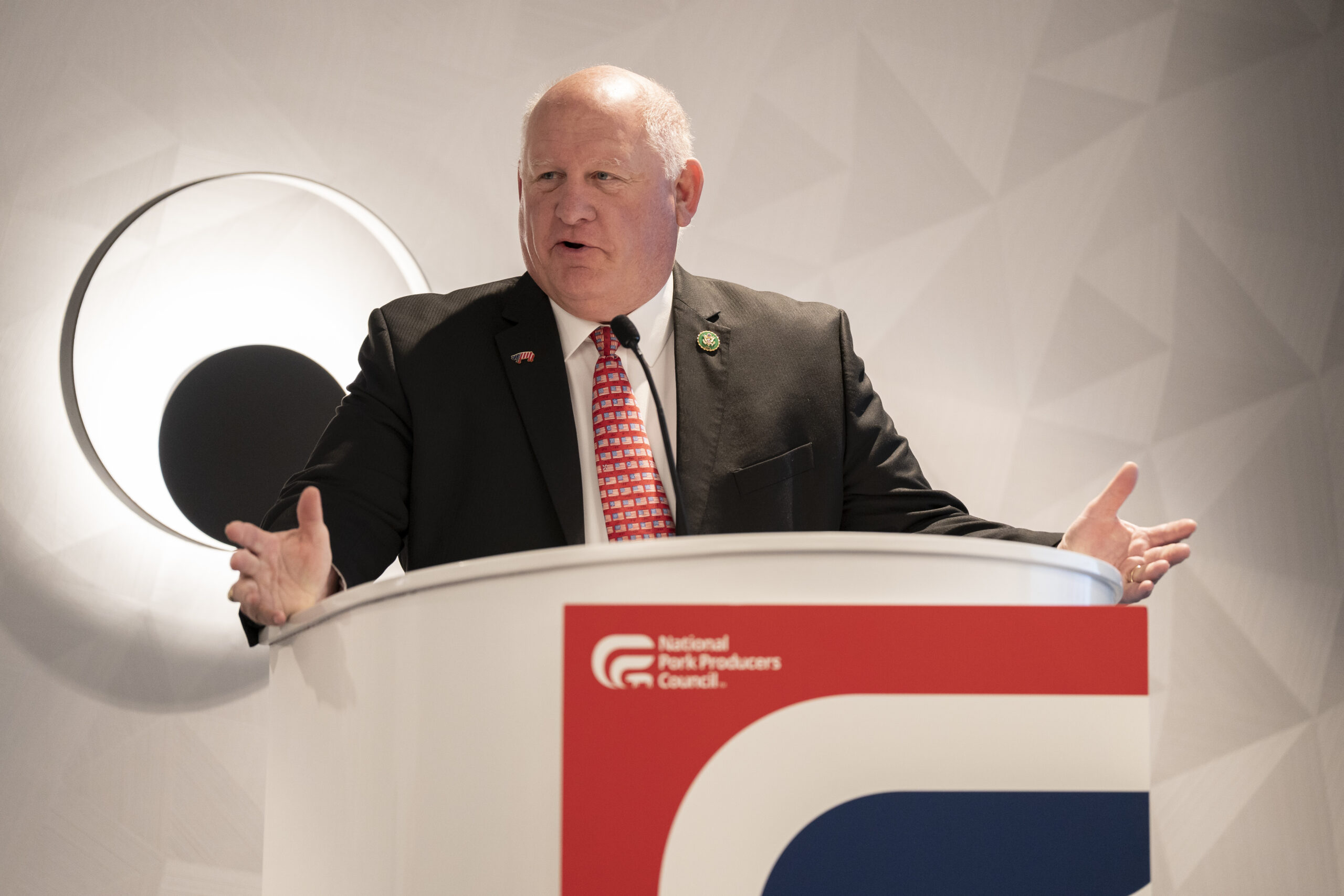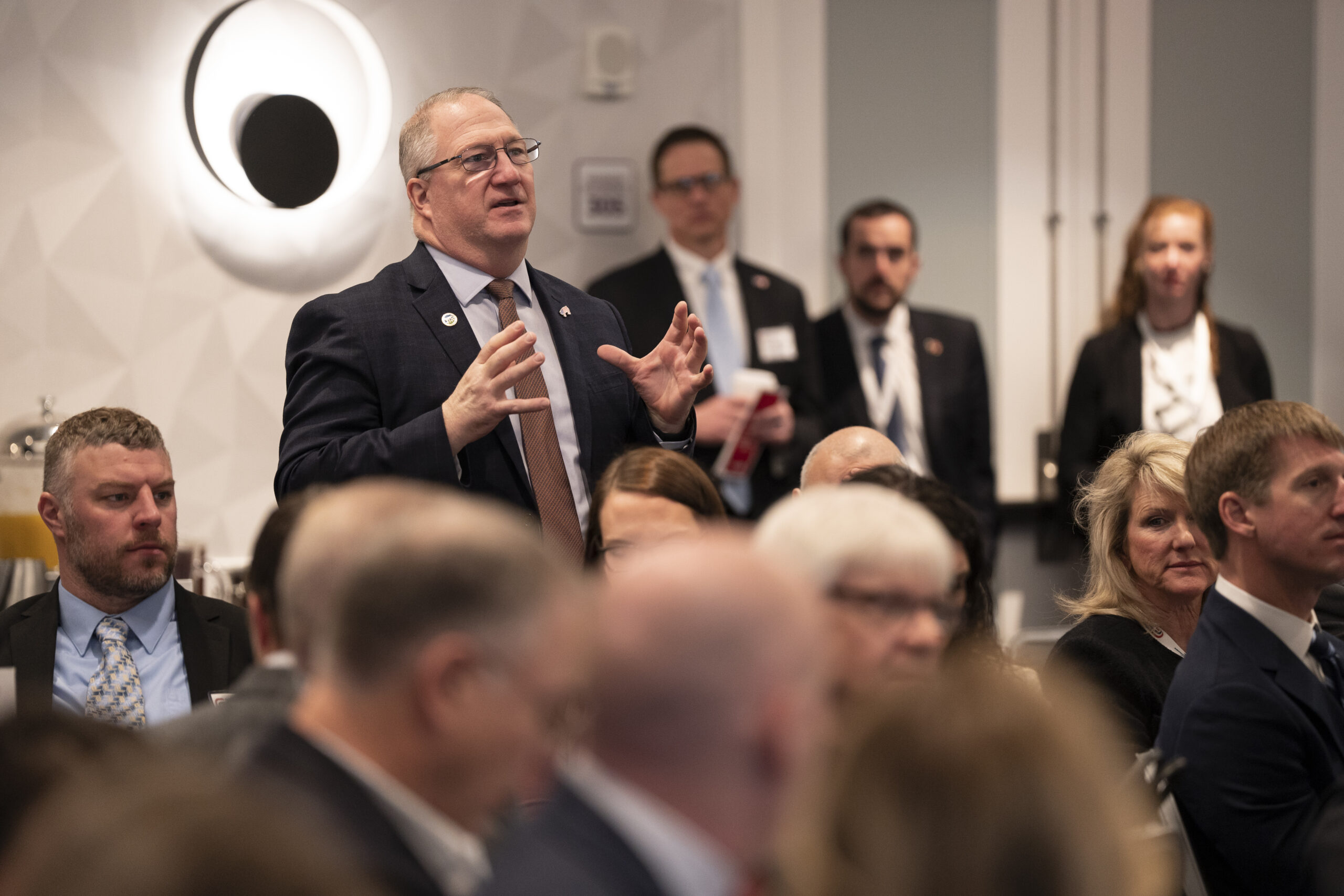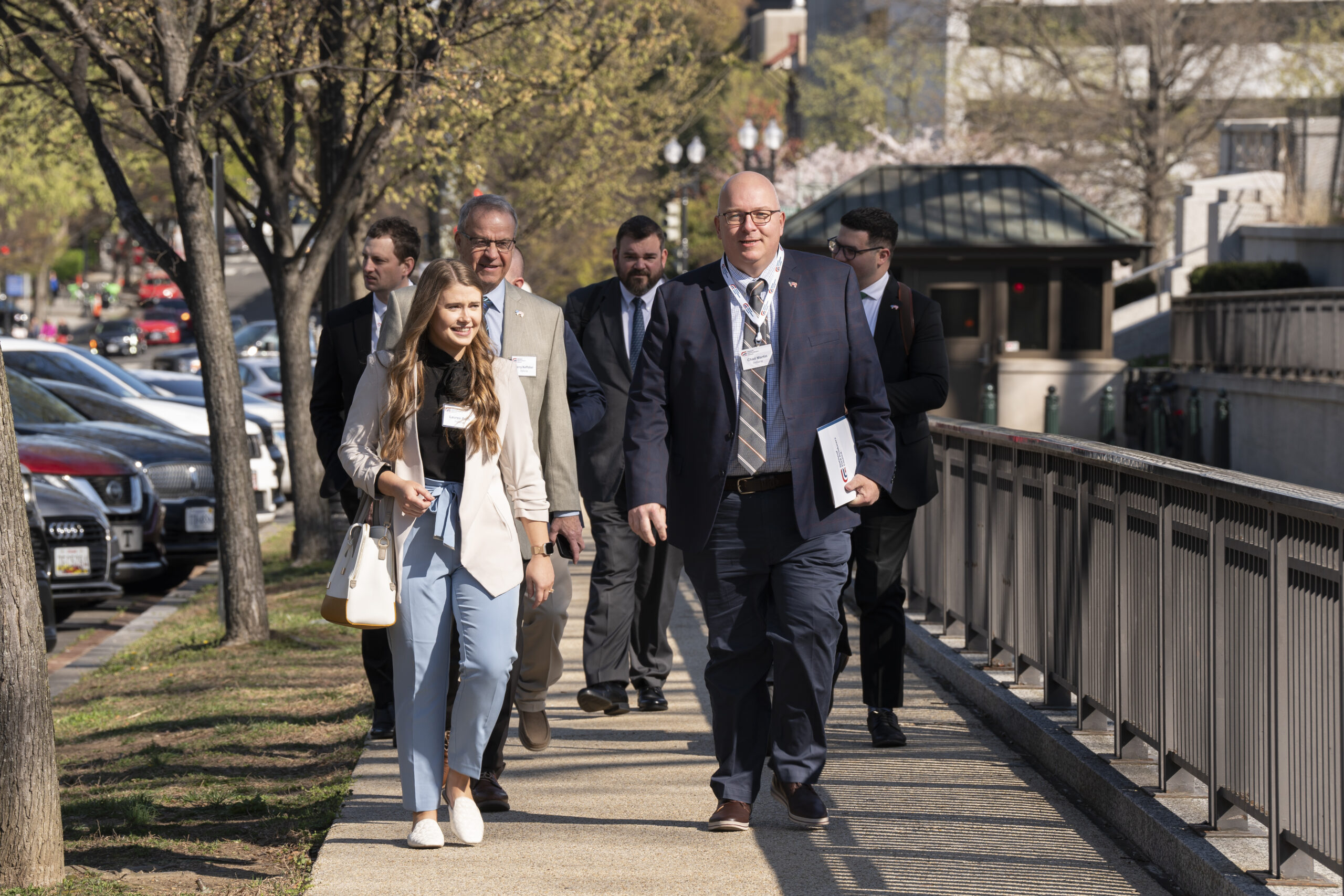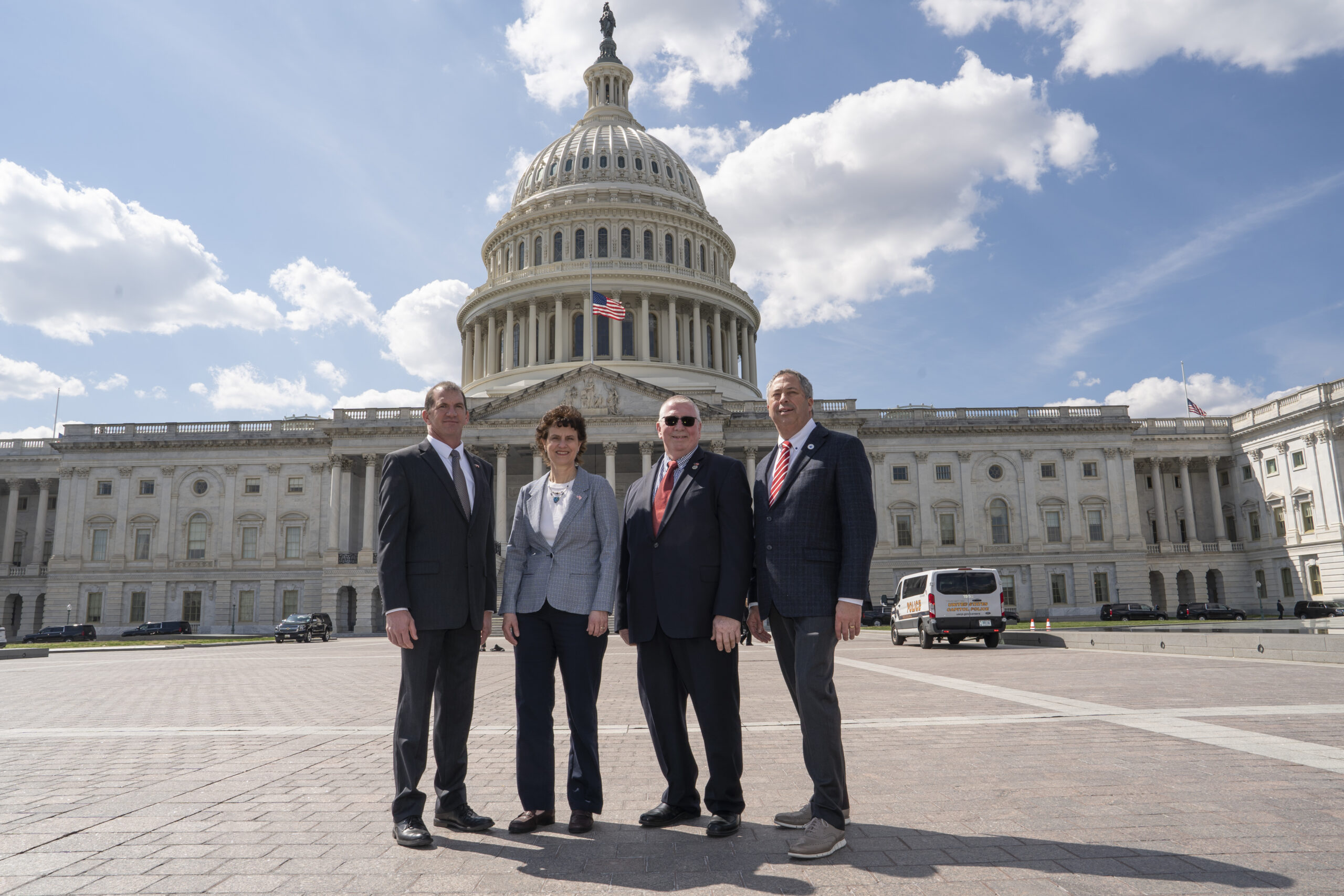Capital Update – For the Week Ending March 31, 2023
In this week’s National Pork Producers Council (NPPC) Friday recap: pork producers take on DC for spring fly-in, Secretary Vilsack testifies before the Senate and House and NPPC applauds Senate’s move to block WOTUS rule. Take a deeper dive below.
Pork Producers Take On DC for Spring Fly-in
What happened: More than 100 pork producers from around the country attended National Pork Producers Council’s (NPPC) Spring Legislative Action Conference (LAC) on March 29-30 in Washington, D.C. The biannual fly-in allows U.S. pork producers to meet with their Members of Congress to discuss the industry’s policy priorities and how decisions affect their farms and families.
The Spring 2023 LAC was sponsored by Merck Animal Health, a research-driven company that develops, manufactures and markets a broad range of veterinary medicines and services.
What was discussed: During the two-day event, speakers included NPPC President, Scott Hays, House Committee on Agriculture Chairman, Rep. Glenn “GT” Thompson (R-PA), Rep. Greg Murphy (R-NC) and NPPC subject matters experts.
2023 Farm Bill – Protect the U.S. Food Supply: NPPC is advocating for a 2023 Farm Bill that fully funds the programs that safeguard the nation’s food supply against threats posed by foreign animal diseases, as well as key programs that expand foreign markets for U.S. agricultural products.
The U.S. pork industry has faced significant headwinds since 2018, when the farm bill was last reauthorized, due to trade retaliation, supply chain issues exacerbated by the COVID-19 pandemic and looming threats of foreign animal disease. U.S. pig farmers need solutions to sustain an industry that supports more than 610,000 American jobs and generates nearly $36 billion in personal income annually in rural America.
The upcoming farm bill offers the opportunity to address the challenges and provide the industry with the tools it needs to prevent further disruption.
Learn more here.
Competition and Labor – Ensure Fair Markets and Competitive Opportunities and Strengthen the H-2A Visa Program: Agriculture suffers from a severe labor shortage that negatively affects all links in the food supply chain – particularly in the pork industry. Pig farm employment has declined since 2021, despite higher wages and competitive benefits. Although historically dependent on foreign born-workers, current visa requirements fail to meet pork industry workforce needs.
Learn more here.
Trade – Expand and Develop Market Access: NPPC supports trade agreements and other initiatives that open new and expand existing export markets and eliminate tariff and non-tariff barriers to U.S. pork exports.
U.S. pork farmers have built a global reputation for providing domestic and foreign markets with high-quality, affordable products. In 2022, the U.S. exported $7.6 billion worth of pork to more than 100 countries and increased the average value of each hog marketed by nearly $61. U.S. pork exports also support over 100,000 jobs domestically.
To grow exports and support high paying jobs in rural communities, the United States must open new and expand existing markets through trade agreements, trade and investment framework agreements, and market access deals.
Learn more here.
Learn more: To learn how NPPC works to protect the livelihoods of pork producers and advocate for the social, environmental and economic sustainability of U.S. pork producers and their partners by supporting reasonable public policies that expand access to global operations, check out the key policy priorities.

Left: House Committee on Agriculture Chairman, Rep. Glenn “GT” Thompson (R-PA), addressing state associations and producers.

Left: Iowa pork producer and NPPC Board member, Dwight Mogler.

Left: Pork producers walking to meet members of Congress on Capitol Hill.

Left: 2023-2024 NPPC Board Officers, Scott Hays of Missouri, Lori Stevermer of Minnesota, Duane Stateler of Ohio and Terry Wolters of Minnesota.
Secretary Vilsack Testifies Three Times Before Senate and House
What happened: The United States Secretary of Agriculture, Tom Vilsack, was busy this week testifying before the Senate and House appropriations panels.
He appeared before the House Committee on Agriculture where he was pressed on issues related to USDA’s Thrifty Food Plan (TFP) and the Climate-Smart Commodities program. Vilsack stands by USDA’s reevaluation of TFP. The Secretary also defended his spending through the Climate Credit Corporation (CCC) for climate uses.
Before the House and Senate Appropriations committees, Vilsack’s faced questioning around President Joe Biden’s budget proposal for fiscal 2024. His budget called for a 14 percent increase in discretionary programs, which are funded by annual appropriations packages.
Why it matters: The Secretary’s appearances before these committees is vital in developing the 2023 Farm Bill, which helps mold the way for pork producers in the upcoming years.
NPPC advocates for a 2023 Farm Bill that fully funds the programs that safeguard the nation’s food supply against threats posed by foreign animal diseases, as well as key programs that expand foreign markets for U.S. agricultural products.
Key areas:
- Foreign Animal Disease (FAD) prevention
-
- National Animal Vaccine and Veterinary Countermeasures Bank (NAVVCB)
- National Animal Health Laboratory Network (NAHLN)
- National Animal Disease Preparedness and Response Program (NADPRP)
- National Veterinary Stockpile (NVS)
- Feral swine eradication
- Agricultural Quarantine and Inspection (AQI) services user fees
- National Detector Dog Training Center authorization
- Expanding market access
Learn more here.
NPPC Applauds Senate’s Move to Block WOTUS Rule
What happened: With strong bipartisan support, the U.S. Senate passed the Congressional Review Act (CRA) resolution to overturn the Environmental Protection Agency’s (EPA) finalized waters of the United States (WOTUS) rule.
Why does this matter: EPA and environmental activists have been seeking to change the Clean Water Act’s definition of WOTUS, attempting to expand federal jurisdiction beyond just navigable waters to minimize state and local authority over private land use decisions and agricultural activities.
American farmers, builders, manufacturers and small businesses believe that EPA’s rule, which was rushed out while the U.S. Supreme Court is set to rule on the extent of the Agency’s authority under the Clean Water Act, goes too far in expanding federal jurisdiction over private land that will create costly burdens.
NPPC’s take: EPA should stop implementation of the WOTUS rule until the U.S. Supreme Court issues its decision in Sacket v. EPA, which was argued before the Court on Oct. 3. A decision in that case, which will spell out the extent to which EPA can land use features under the Clean Water Act, is expected at any time.